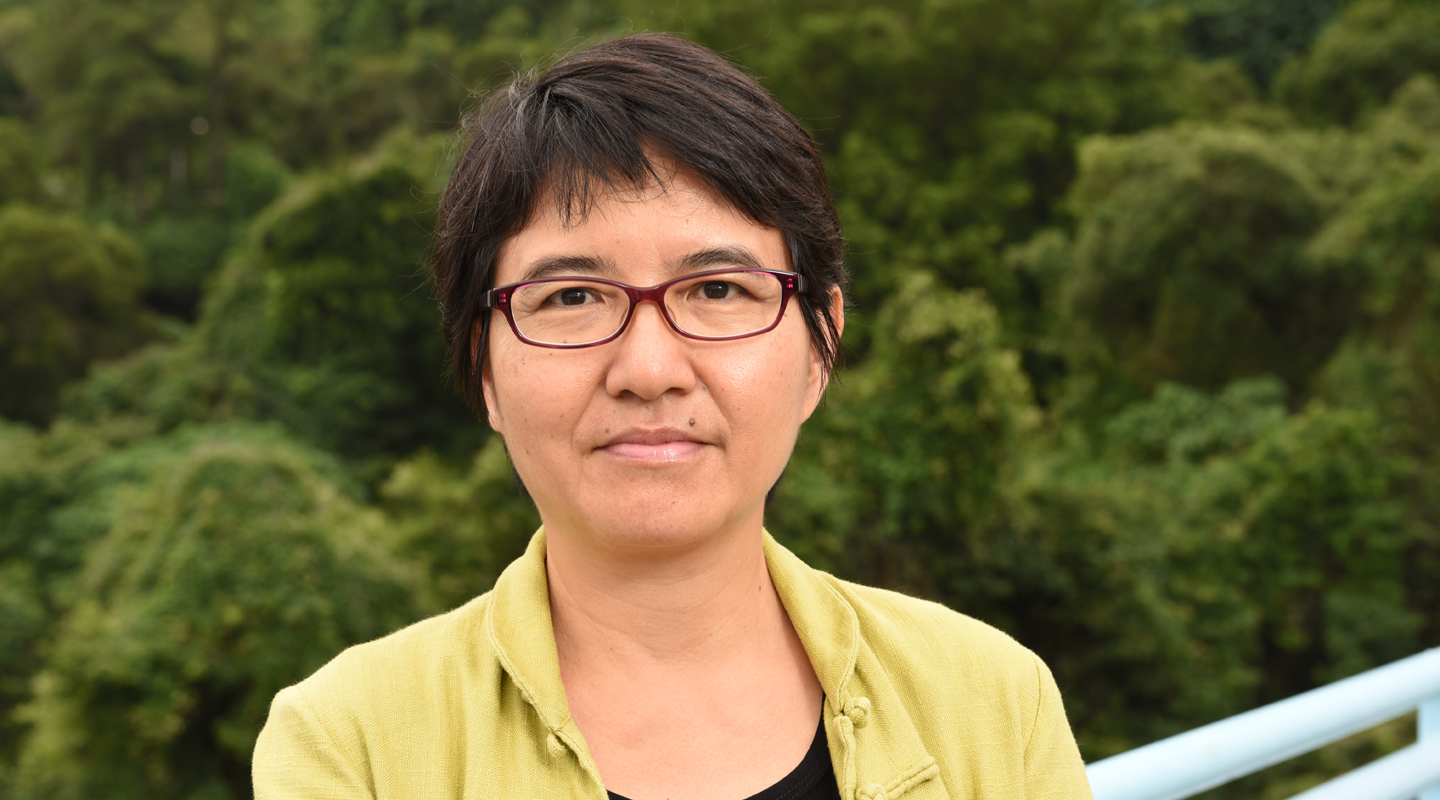The University General Education Challenge
Prof. Leung Mei-yee, who has been involved in CUHK's General Education curriculum for over a decade, tells how to build a solid foundation in freshmen and train them to scrutinize and respond to the world with rationality.

CUHK recently became the first institution outside the US to be bestowed the Exemplary Programme Award for Improving General Education by the Association for General and Liberal Studies. What made the Office of University General Education (OUGE) decide to compete for the award?
General education (GE) is not a discipline in its own right. Different universities have their own ways of developing and teaching it. There’s no universal yardstick for measuring their performances. The University Grants Committee (UGC) has stressed the importance of meeting international standards. We have been paying attention to the education models and assessment methods related to GE around the globe. In 2012, the Chinese University introduced the General Education Foundation Programme (GEF). Although it has been well received by students, we are not complacent. Last year we invited Jerry Gaff, a world renowned GE expert, to review our programme. He was very impressed by the GEF and encouraged us to compete for this award. So we gave it a shot.
What were the association’s assessment criteria?
The assessment covered the entire process—development, implementation, results, and how to ensure continuous improvement. We had to explain how we define our need for improvement, how the improvement scheme dovetailed with missions of CUHK and met the needs of students, whether the curriculum was based on research or empirical data, whether there was participation by different stakeholders, whether the implementation was carefully designed, whether there was evidence of improvement in student learning which could facilitate continuous improvement.
When did you get involved in developing GE at CUHK?
I studied history and obtained my master’s degree and PhD in France. I joined the OUGE in 1999 as an assistant director, helping Prof. Cheung Chan-fai, the then director, to publish the ‘General Education Series’ and promote the concept of GE on campus. I also served as an adjunct assistant professor at the Department of Modern Languages and Intercultural Studies. In 2003 when there was a need to develop a quality assurance mechanism for GE, I began to work full-time with the OUGE.
What were your personal GE experiences?
Back then at Chung Chi College, I was greatly inspired by a message that Dr. Philip Shen delivered in a freshmen GE course ‘Idea of University’: university education is completely different from secondary education. You wouldn’t be given model answers; you have to learn by yourself. Before graduating, we had to complete a ‘Senior Seminar’, which required students from different departments to form teams to decide on paper topics and conduct research according to our respective expertise. My teammates were philosophy and mathematics students. We studied the Chinese almanac Tung Shing from the perspectives of astronomy, intellectual tradition, and history. We also interviewed Mr. Choi Park-lai, an expert in Chinese geomancy and calendars. It was a refreshing experience in interdisciplinary learning.

You received the award in Milwaukee and gave a presentation on CUHK General Education. What was the response?
The assessment panel was impressed by our well-paced implementation of the GEF, collection of empirical data of learning outcomes, and step-by-step improvements. They were surprised that a comprehensive research university can develop a foundation programme with relatively low credit requirements and that has an extensive and deep impact on all students. One of the panel members even said that it was necessary to review the way of GE reform—conventional sweeping reforms may no longer be desirable. Perhaps it would be better to learn from CUHK’s experiences of focusing on small areas first and exposing students to common learning experiences as a foundation for learning partnerships.
What challenges does the GEF pose to students? How was it received by them?
In the digital age when people can cut and paste from the Internet whenever they like, we require students to give up second- or third-hand information and to read the classics. There are seminars in addition to large-class-size lectures. They have to engage in face-to-face and verbal communication, and organize their thoughts into coherent sentences.
Since its introduction in 2012, the GEF has consistently ranked top in freshmen evaluations. According to a survey conducted by the Centre for Learning Enhancement and Research, freshmen feedback is generally positive. Of course comments like ‘too many readings’, ‘too difficult’ constantly show up. But the students are ‘happy to be pushed’. They are happy to be pressed to think about serious topics and acquire necessary knowledge that they wouldn’t otherwise learn due to laziness. At first students are reluctant to learn knowledge outside their main subjects. But according to comparisons of before- and after-course surveys, both arts students’ interest in science and science students’ interest in the arts have grown.
How do you relax?
Through gardening. I grow lettuces and cucumbers on the roof of my home. I also like to read novels. But recently I don’t have the energy for heavy ones. I prefer to read Jane Austen novels; they tend to be lighter. People generally see her as a romance novelist. But I think that her works explore the various faces of humanity, and depict the importance of treating others with sincerity and respect, regardless of social class. This serves as a reminder to consider other people’s feelings in my constantly busy life.
This article was originally published in No. 466, Newsletter in Nov 2015.

